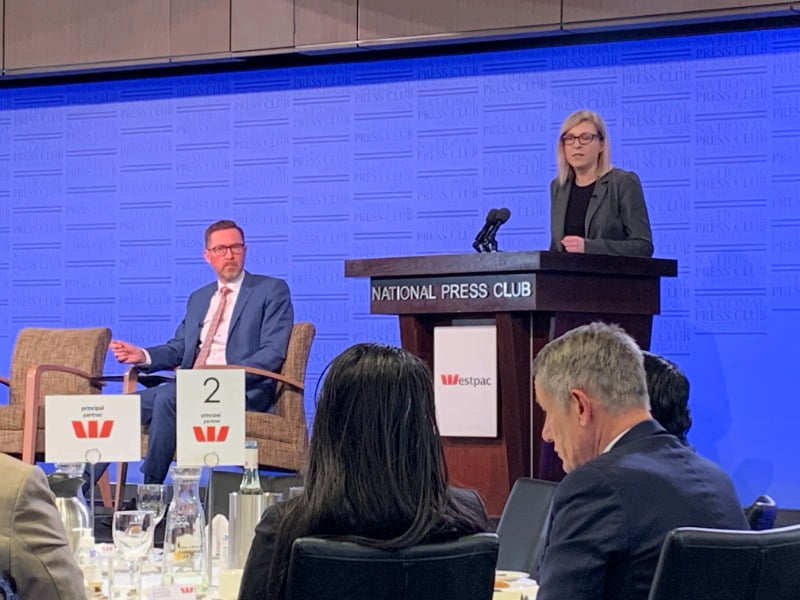The launch of an Australian national interest strategy could help propel the growth of the local cybersecurity sector and assist the economic recovery from COVID-19, according to AustCyber chief executive Michelle Price.
Ms Price, along with Australian National University National Security College head Professor Rory Medcalf, delivered a National Press Club address on Wednesday on the need for a national interest strategy, and the crucial role cybersecurity will play in the coming years.
There have been a number of government policies this year focused on national security and interest, Professor Medcalf said, and now a more cohesive strategy is needed around this.

“What we need now is a clear and frank articulation by government about how and why all these pieces fit together, and what other preparations must be done. It’s time for a national security strategy, or perhaps more accurately, a national interest strategy,” Professor Medcalf said.
“If we’re playing a long game, we need a vision for a confident, resilient, inclusive Australia, that explains how it all fits together – sustainability, energy, structure, health, education, technology and innovation.”
Such a strategy would look at how to integrate security with other areas of policy in relation to national interest, prosperity and social cohesion, Professor Medcalf said.
Cybersecurity is critical to the framing of this national interest strategy, Ms Price said.
“When we look at the role of cybersecurity as part of our pursuit of national interest, you can start to see it’s not just something about national security,” Ms Price said.
“It was born out of national security, that is true, but as a country that has always been from a consumer standpoint an early adopter of emerging technology and helping to normalise emerging technologies.
“We’re standing in a situation now where enormous economic prosperity can come to our country as a result of being conscious of the relationship between economic prosperity and national security and social impact in a cyber-physical world.”
This push for a strategy should be harnessed to drive further growth in the local cybersecurity sector, she said.
Ms Price said there are still “air gaps” in Australia’s national security, and cybersecurity can act as the glue to close these up.
“In the siloing between national security and economic prosperity and it gives me greater hope that we fast-forward to today and because of the pandemic, we are having conversations now about the three elements to national interest – national security, economic prosperity and social impact – and to see them as engines of identity for this nation,” she said.
With increased obligations placed on operators of critical infrastructure in Australia in terms of cybersecurity, these entities need to be privy to more information on the risks, Professor Medcalf said.
“The Commonwealth government needs to keep becoming more open to risk management in the way it shares sensitive, even classified, briefings with the private sector, infrastructure providers, state governments and universities. And this should extend to the Opposition,” he said.
“It’s important that when the government imposes positive security obligations, as it now does, on corporate leaders in relation to cybersecurity, there should be correspondingly sensitive briefings to explain the risks and clear personnel inside the private sector, technology and research organisations as well.”
Do you know more? Contact James Riley via Email.

